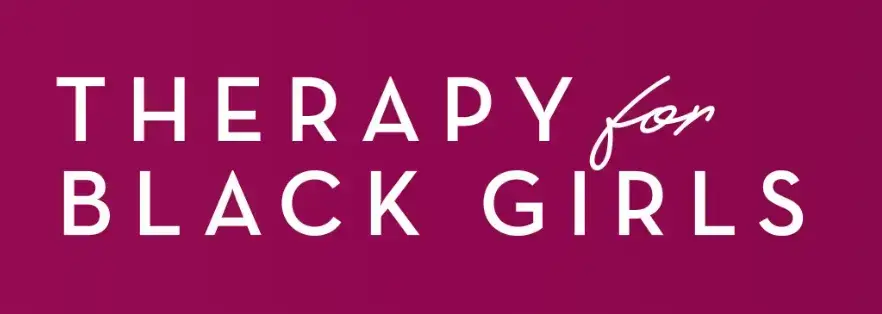Healthier Relationships
Begin with Self-Awareness
Many people find themselves stuck in a cycle of toxic relationships and wonder how to begin working towards healthier relationships. If you can relate to this, it’s important to know that you are not alone. The first step towards breaking these patterns is to recognize them.

Unhealthy relationships can come in many forms and can include behaviors such as:
- Controlling behaviors
- Lack of Respect for Boundaries
- Lack of Accountability
- Lack of Trust
- Bullying/Threatening
- Verbal and Physical Abuse
- Manipulation/Gaslighting/Blame
If you find yourself in unhealthy cycles with your partner or past partners, it may be worth examining your thoughts and behaviors to identify any unhelpful patterns that may be keeping you stuck. It can be helpful to consult with a therapist for extra support.
Behaviors *Not* Found in Healthier Relationships
There are many reasons why people may find themselves in unhealthy relationships. For some, it may be related to their upbringing and what they learned from their parents or family members. For example, if you grew up in a household where conflict was avoided, you may feel more anxious when conflict arises. This tends to lead to resentment, hurt feelings and being emotionally withdrawn during conflict resolution.
Your Role in Forming Healthier Relationships
For others, it may not be at all related to their upbringing, and may be due to other reasons such as shared finances or having children with a partner. In some cases, self-esteem and feelings of self-worth play a role in how relationship patterns are established. This is where individual therapy could help to process challenges and plan for change.
Breaking the Cycle of Unhealthy Relationship Patterns
This includes “red flag” behaviors such as manipulation, control, belittling language/name calling and/or manipulative/controlling behavior by you or your partner
Taking ownership of your behaviors will open up opportunities for change. It may also show your partner that you are invested in the health of the relationship.
Setting boundaries is essential in any relationship, but is especially important when trying to break unhealthy patterns. Learning how to set your own boundaries and respect the boundaries of your partner can create a stronger sense of security and trust.
It may seem obvious, however, many people don’t consistently participate in self care. It’s important to prioritize self care to make sure your needs are met and you are at your best to handle any stress that comes your way.
Breaking the cycle of unhealthy relationship by creating patterns of healthier relationships can be challenging so it’s important to have a good support system to help you. This may include finding an individual therapist, attending support groups or talking to trusted friends/family members.
If you are looking to make healthy changes for yourself and your relationships, talk to one of our therapists today! Our team of experts can help you strengthen your self-awareness, be more accountable to loved ones and enjoy healthier, more fulfilling relationships!
Frequently Asked Questions about therapy
Where are you located? I need a therapist near me
We are fully online, which means that your therapy sessions will be help via video call on our HIPAA compliant Platform. Anyone in New Jersey can access our therapy services
How do I get started as a new client?
New Clients can reach out to us directly via call, text or email here:
Does my insurance cover my visits?
We provide”Courtesy Billing” for clients who are using the Out-of-network insurance benefits.
Our Insurance Page shares a small blurb about Why We Left Insurance Panels
What are out-of-network benefits?
When using OON benefits, patients typically pay the full cost of the treatment upfront and then file a claim with their insurance company for reimbursement. The amount of reimbursement can vary depending on the plan, but it can sometimes be as high as 90%. Call your insurance to see if you have OON benefits or click here to call us and we can check for you!
Is Online Therapy As Effective As In-Person Therapy?
Online therapy is essentially face-to-face counseling, just conducted remotely. Studies show that tele-therapy is as effective as traditional counseling. Professional organizations and state governments recognize its benefits and have set regulations for it. However, like any therapy, its success in achieving your goals isn’t guaranteed. It’s important to discuss with your therapist whether tele-therapy is working for you.
How Should I Prepare for My First Session?
Showing up is all that you need to do! But if you really want to get the most out of session, it could help to take some time to think about what you want from therapy. It helps to write down your goals, questions you have or things that you feel are important to share.
Do you offer traditional talk therapy?
of course! though we have some unconventional therapy approaches, we are rooted in evidenced based practices. Talk therapy is a major player in the therapy room! See What we Treat and Integrative Services for more information
Is Virtual Counseling Suitable for Everyone?
Online therapy might not be as effective for individuals with chronic suicidal thoughts, severe trauma, significant mental health history, or those recently in intensive care. Such cases often benefit more from traditional, in-person counseling. We’ll help you decide if our online services are right for you during your intake and evaluation.
Can I Change Therapists If I'm Not Happy?
Yes, you can switch therapists to another provider within the practice, or we can provide you a referral if preferred. We want to ensure that your time and effort are well spent, and that you are getting the relief you need, that’s why we work collaboratively with each other in the practice, as well as outside therapists who we know and trust.
How Do I Know If Therapy Is Helping?
You should feel like you’re making progress. Signs it’s working include:
- Feeling comfortable talking to your therapist
- Your therapist respects boundaries
- You’re moving towards your goals
- You feel listened to
You’re doing better in life - Your self-esteem is getting better
What is your cancellation policy?
We ask that clients provide at least 24 hours notice in the event that they need to cancel to avoid the 50% cancellation fee. we understand that life happens and do our best to be flexible & reschedule.
What Geographic Areas Are Served?
Currently, we serve clients in New Jersey and are expanding to other states as telehealth laws evolve. While telehealth offers the convenience of attending sessions from anywhere, state laws require clients to be in-state during their session.
Is Online Therapy Easy to Use for Non-Tech-Savvy People?
Yes, it’s pretty simple to access sessions. You’ll need basic internet skills, such as opening and visiting the patient link sent to you via email. It’s similar to video chatting like Facetime or Zoom. We can also walk you through it on the phone the first time to ensure a strong connection
What Questions Should I Ask My New Therapist?
Feel free to ask anything. Some good questions are:
- How often will we meet?
- What do you specialize in?
- What experience do you have with my issue?
- What outcomes can I expect?
- How will I know I’m progressing?
- How long do you usually work with clients?
- How will we set my treatment goals?
What is the difference between associate therapists & fully licensed therapists?
Our Qualifications:
Our founder, Rebecca Sidoti, is a highly qualified, state-licensed therapist and supervisor with extensive training in anxiety related disorders and innovative treatment such as Ketamine Therapy. Mind by Design Counseling adheres to standards set by the our governing counseling boards.
To see each providers credentials, training and licenses, visit our “Meet the Therapists” Page to learn more.
- LAC/LSW are therapists who may practice clinical work under the supervision of a fully licensed therapist.
- LPC/LCSW are therapists who have completed the necessary clinical hours post-graduation under supervision and can practice clinical work independently.







